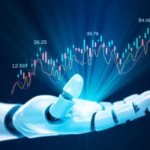Artificial Intelligence (AI) has evolved from a futuristic concept into a transformative force reshaping various sectors. The Kellogg Innovation Network (KIN) has long been at the forefront of discussions about how AI can revolutionize industries and daily life. As AI technologies advance, their potential to impact everything from business operations to healthcare becomes increasingly apparent. This article explores how AI, particularly through machine learning and natural language processing (NLP), is poised to redefine our world.
The Kellogg Innovation Network and AI
A Visionary Perspective
The Kellogg Innovation Network, an initiative by the Kellogg School of Management, has consistently been a pioneer in exploring disruptive technologies. KIN brings together thought leaders, innovators, and experts to discuss the potential and implications of emerging technologies, with AI being a central topic. The network’s discussions have highlighted AI’s role as more than just a buzzword; it is a catalyst for significant change.
AI’s Integration into Daily Life
KIN envisions a future where AI becomes seamlessly integrated into everyday life. From personal assistants that understand our preferences to smart systems that enhance our living environments, AI is set to become a fundamental part of our daily routines. This vision underscores the importance of understanding how AI will influence various aspects of life and industry.
Machine Learning: The Engine of AI Advancement
Understanding Machine Learning
Machine Learning (ML), a subset of AI, involves the development of algorithms that allow computers to learn from and make predictions based on data. Unlike traditional programming, where explicit instructions are required, ML systems improve their performance by identifying patterns and insights from vast amounts of data.
Applications in Business
In the business sector, machine learning is revolutionizing decision-making processes. Predictive analytics, driven by ML algorithms, enables companies to forecast market trends, optimize supply chains, and personalize customer experiences. For example, retailers use ML to analyze consumer behavior, tailoring marketing strategies to individual preferences and increasing sales effectiveness.
Transforming Healthcare
Healthcare is another domain significantly impacted by machine learning. ML algorithms assist in diagnosing diseases, predicting patient outcomes, and personalizing treatment plans. For instance, ML models can analyze medical images to detect abnormalities with high accuracy, aiding radiologists in diagnosing conditions such as cancer at earlier stages.
Enhancing Financial Services
The financial sector benefits from machine learning through fraud detection, risk assessment, and investment strategies. ML algorithms can identify suspicious transactions and assess creditworthiness more accurately than traditional methods. Investment firms use ML to analyze market data, identify trends, and optimize portfolios.
Natural Language Processing: Bridging Human and Machine Communication
What is Natural Language Processing?
Natural Language Processing (NLP) is a field of AI focused on enabling computers to understand, interpret, and respond to human language. NLP encompasses various tasks, including text analysis, sentiment analysis, and language generation. It plays a crucial role in making human-computer interactions more natural and intuitive.
Advancements in NLP
Recent advancements in NLP have led to the development of sophisticated language models that can generate coherent and contextually relevant text. These models, such as OpenAI’s GPT series, are capable of understanding and producing human-like responses, enhancing applications like chatbots, virtual assistants, and content generation tools.
Impact on Customer Service
In customer service, NLP-powered chatbots and virtual assistants are transforming the way businesses interact with customers. These AI-driven systems can handle routine inquiries, provide instant support, and offer personalized recommendations. As a result, companies can improve customer satisfaction and reduce operational costs.
Revolutionizing Content Creation
NLP is also revolutionizing content creation. AI tools can generate articles, reports, and even creative writing with minimal human input. This capability enables businesses and content creators to produce high-quality content more efficiently, while also offering new possibilities for storytelling and communication.
Enhancing Accessibility
NLP contributes to making technology more accessible. For individuals with disabilities, NLP applications like speech-to-text and text-to-speech systems offer new ways to interact with digital content. These tools break down barriers and provide greater inclusivity in technology usage.
The Future of AI Integration
Challenges and Considerations
As AI continues to advance, several challenges and considerations must be addressed. Ethical concerns, data privacy, and the potential for job displacement are critical issues that require thoughtful solutions. Ensuring that AI technologies are developed and implemented responsibly is essential for maximizing their benefits while mitigating potential risks.
The Role of Collaboration
Collaboration between technologists, policymakers, and industry leaders will play a vital role in shaping the future of AI. By working together, stakeholders can create frameworks and guidelines that promote ethical AI development and ensure that its benefits are widely distributed.
AI’s Potential Impact on Society
The potential impact of AI on society is profound. From transforming industries to enhancing personal experiences, AI has the power to drive significant progress. As AI technologies become more integrated into daily life, they will shape how we live, work, and interact with the world around us.
Conclusion
The Kellogg Innovation Network’s discussions on AI reflect the transformative potential of this technology. Machine learning and natural language processing are at the forefront of this revolution, driving advancements across various sectors. As AI continues to evolve, its integration into daily life will become increasingly seamless, offering new opportunities and challenges. By understanding and embracing these changes, we can harness the full potential of AI to create a better future for all.







